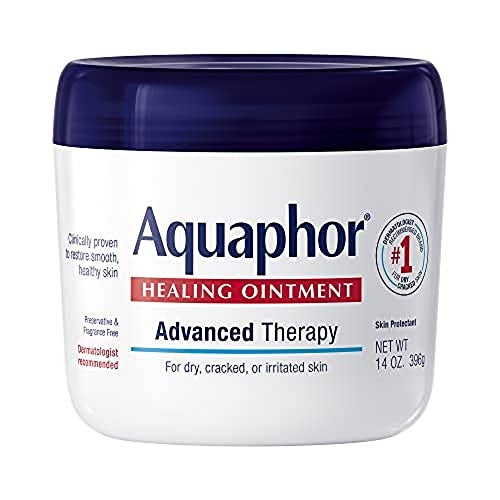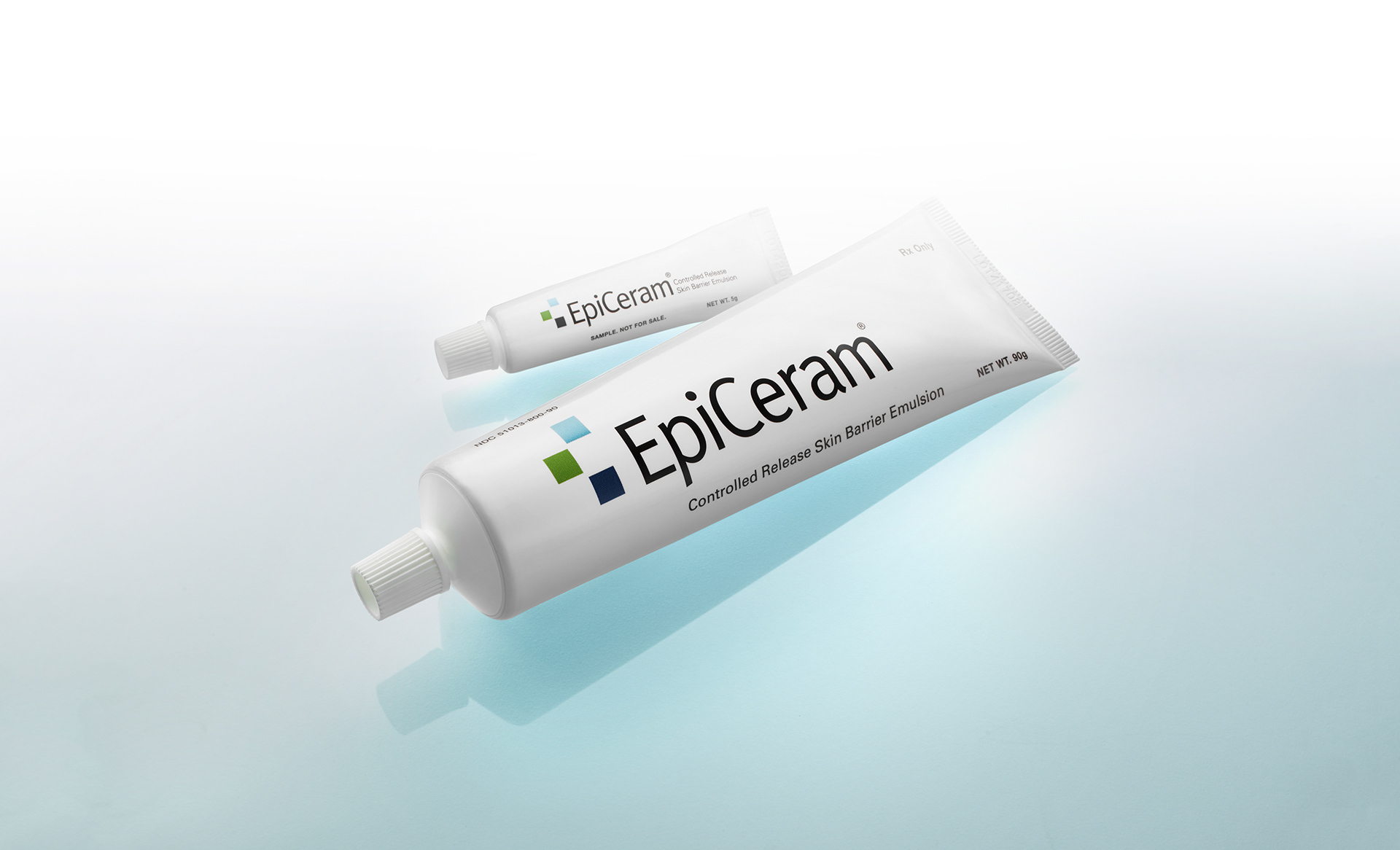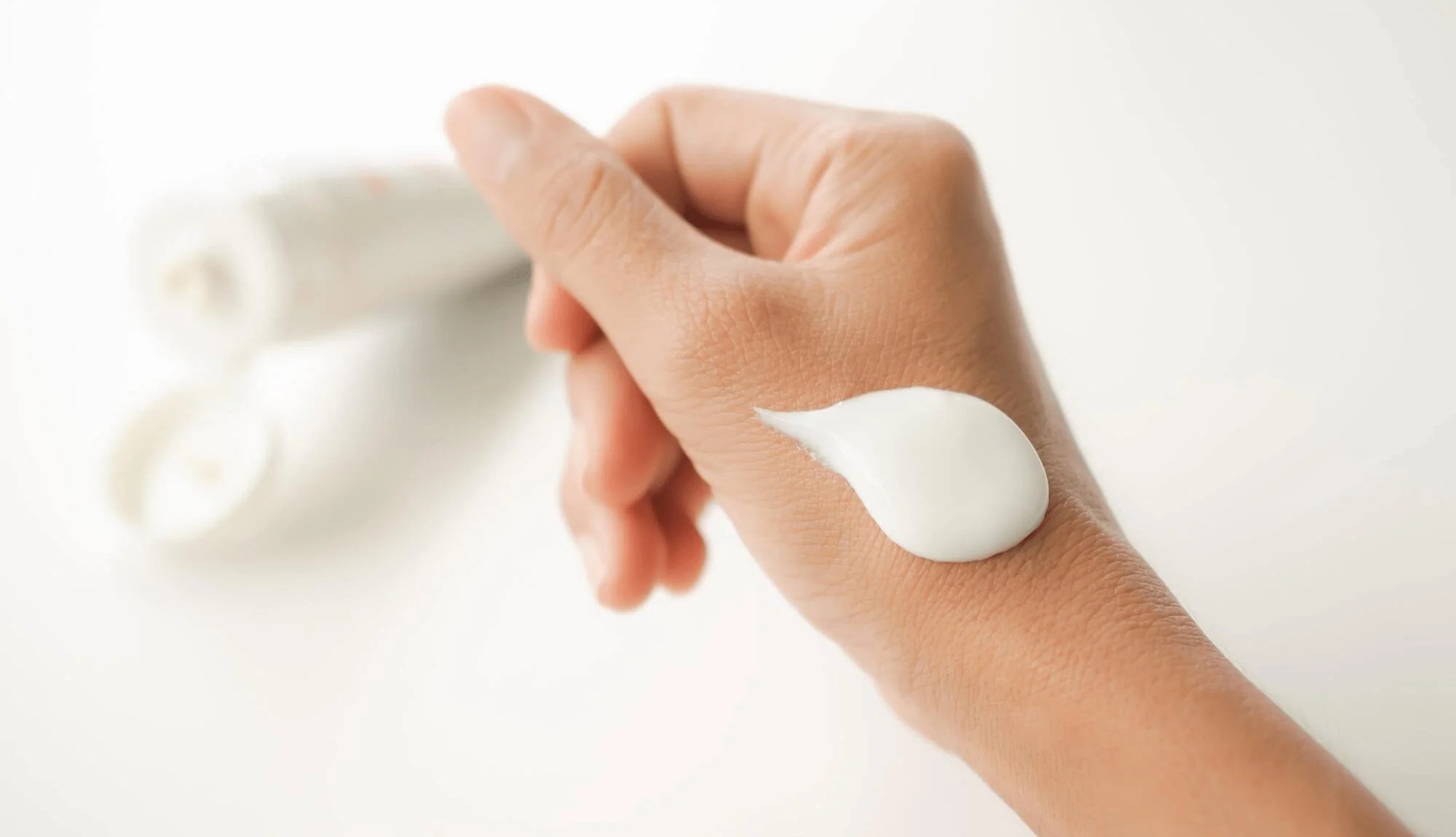Ever found yourself pondering if an everyday skincare product could double as an intimate lubricant? You’re not alone. Many have wondered whether Aquaphor, the beloved ointment known for its skin-soothing prowess, can step in as an alternative to traditional lubricants.
In this blog post, we’ll explore this intriguing query, weighing the safety, effectiveness, and alternatives to using Aquaphor as lube. By the end, you’ll have a clear understanding of whether this multitasking ointment fits the bill for your intimate needs.
What is Aquaphor?
Aquaphor is a well-known ointment primarily used for healing and soothing dry, cracked, or irritated skin. This product, developed by Eucerin, boasts a unique formulation designed to provide long-lasting moisture and protection. It’s a go-to for many, thanks to its versatility and effectiveness.
Ingredients in Aquaphor
The key ingredients in Aquaphor include:
- Petrolatum (41%) – Acts as a barrier to lock in moisture.
- Mineral oil – Adds an extra layer of hydration.
- Ceresin – Provides texture and consistency.
- Lanolin alcohol – Helps to condition and protect the skin.
- Panthenol and glycerin – Additional moisturizers that enhance skin hydration.
Can Aquaphor Be Used as Lube?
Let’s address the million-dollar question right away. Can Aquaphor be used as lube? While Aquaphor’s moisturizing properties might make it seem like a viable option for lubrication, there are several factors to consider before repurposing it in this way.
Aquaphor’s Formulation and Alternative Uses
Aquaphor’s petrolatum-based formulation creates a thick, occlusive barrier on the skin, which can retain moisture effectively. However, when it comes to intimate activities, this same formulation may not provide the lasting lubrication needed, nor is it designed to enhance sexual pleasure.
The Safety Aspect
External Use Safety
Aquaphor is generally considered safe for external use on various parts of the body. It’s often recommended for treating dry or chafed skin, minor cuts, burns, and even diaper rash. Its gentle formulation typically doesn’t cause irritation when used as directed.
Internal Use Risks
Using Aquaphor internally, however, raises several red flags. The product is not sterilized, and introducing non-sterile substances into intimate areas can increase the risk of infections. Additionally, the presence of lanolin alcohol and mineral oil can potentially disrupt the delicate pH balance of vaginal or anal tissues, leading to discomfort or irritation.
Ingredients That Could Cause Irritation or Harm
Certain ingredients in Aquaphor, like lanolin alcohol and mineral oil, may not be suitable for all skin types, especially sensitive areas. These additives could lead to allergic reactions or exacerbate existing skin conditions when applied internally.
Why Aquaphor Is Not Ideal for Intimate Lubrication
Texture and Composition Issues
Aquaphor’s thick, greasy texture, while excellent for protecting skin barriers, is far from ideal for intimate lubrication. It doesn’t offer the smooth, silky glide that many seek in a sexual lubricant, which can affect the overall experience.
Lack of Sterility
One of the main concerns with using Aquaphor as lube is its lack of sterility. Unlike products formulated specifically for intimate use, Aquaphor is not manufactured under sterile conditions, posing a risk of introducing harmful bacteria during intimate activities.
Lack of Long-Lasting Lubrication Properties
Aquaphor was not designed to provide long-lasting lubrication. Its primary function is to lock in moisture and protect the skin, not to reduce friction over prolonged periods, which is crucial in intimate settings.
Exploring Safer Alternatives
Water-Based Lubricants
Water-based lubricants are a popular choice for many due to their versatility and compatibility with condoms and sex toys. These lubes are easy to clean up and typically free from oils and irritating additives.
Benefits of Using Water-Based Lubes
- Safe to use with latex condoms and silicone toys.
- Non-staining and easy to wash off.
- Generally mild and less likely to cause irritation.
Key Ingredients to Look For and Avoid
Look for water-based lubes containing glycerin and propylene glycol for added smoothness. Avoid products with parabens or high concentrations of sugars, which can cause yeast infections.
Silicone-Based Lubricants
Silicone-based lubricants offer longer-lasting lubrication compared to their water-based counterparts. They are ideal for extended intimate sessions and can be used in water, making them great for shower or bath activities.
Advantages of Silicone-Based Lubricants
- Long-lasting without the need for frequent reapplication.
- Waterproof, perfect for use in water-based environments.
- Smooth and silky texture that enhances pleasure.
Situations Where They Are Most Effective
Silicone-based lubes are excellent for marathon intimacy sessions and for use in water. However, they should not be used with silicone toys, as they can degrade the material over time.
Natural Oils
Natural oils like coconut oil and almond oil are sometimes used as lubricants due to their moisturizing properties. However, they come with their own set of considerations.
Discuss Options Like Coconut Oil and Almond Oil
- Coconut Oil – Known for its antimicrobial properties and pleasant scent. It provides a smooth, natural glide.
- Almond Oil – Offers a light, silky feel and is rich in vitamins that nourish the skin.
Address Safety Concerns with Latex Condoms
It’s important to note that oil-based lubricants can weaken latex condoms, increasing the risk of breakage. If using natural oils, opt for polyurethane or nitrile condoms instead.
Expert Opinions and Recommendations
Quotes from Healthcare Professionals
Dr. Emily Parker, a gynecologist, emphasizes the importance of using products specifically designed for intimate use. “While Aquaphor is excellent for skin care, it lacks the properties needed for safe and effective lubrication,” she states. “Using it internally can lead to infections and discomfort.”
Links to Studies or Articles About Safe Lubrication Alternatives
For more information on safe lubrication practices, refer to studies published by the National Institute of Health (NIH) and articles by leading sexual health organizations like Planned Parenthood.
Personal Testimonials
Share Experiences from Individuals Who Have Tried Aquaphor and Other Lubes
Several users have shared their experiences on online forums. While some found Aquaphor decent for skincare, others reported discomfort and irritation when used as a lubricant. On the other hand, water-based and silicone-based lubes received positive feedback for their effectiveness and safety.
Pros and Cons from Real Users
- Pros of Aquaphor – Great for dry skin, easily accessible.
- Cons of Aquaphor – Not suitable for internal use, can cause irritation.
- Pros of Specialized Lubes – Safe, effective, and designed for intimate use.
- Cons of Specialized Lubes – May require trial and error to find the perfect one.
Conclusion
In conclusion, while Aquaphor is a fantastic product for skincare, it’s not designed to function as an intimate lubricant. Its formulation poses several risks, including irritation and lack of sterility. Instead, consider using water-based, silicone-based, or natural oil-based lubricants specifically formulated for intimate use. Prioritizing safety and comfort can enhance your intimate experiences and maintain your overall health.
For those seeking further guidance, consult healthcare professionals and explore dedicated lubrication options to find what works best for you. Share your experiences or ask questions in the comments below and subscribe to our newsletter for more tips and advice.
FAQs
Is Aquaphor Safe for Private Parts?
Aquaphor can be safe for external use on private parts to soothe dry skin. However, it’s not recommended for internal use due to potential risks and lack of sterility.
Can You Use Aquaphor or Vaseline as Lube?
Both Aquaphor and Vaseline are not ideal for use as lubricants. They can cause irritation, are not sterile, and do not provide long-lasting lubrication.
Can Aquaphor Be Used Internally?
Using Aquaphor internally is not recommended. It can lead to infections and irritation due to its non-sterile nature and certain ingredients.
Can You Use Any Vaseline as Lube?
Vaseline, like Aquaphor, is not suitable for use as a lubricant. It can weaken latex condoms and does not provide the necessary lubrication for intimate activities.
















